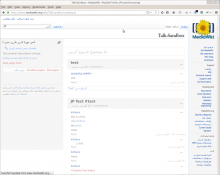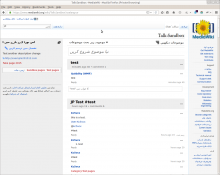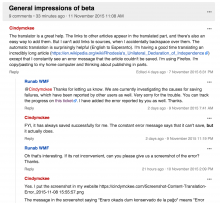When loading https://www.mediawiki.org/wiki/Template_talk:Documentation the page first shows "a day ago" for a second or so, and then it is swapped out for "1 day ago".
Lua error
3 comments • 1 day ago
Lua error
3 comments • a day ago
The libraries for these phrases should probably be match.
GitHub encountered a similar problem in the past they decided, for different reasons, to drop relative timestamps from server output and only do it client-side. Their reason was caching, which I imagine might apply to us as well.
Aside from the difference in implementation (which is fixable in theory), it's also a matter of trade-off between:
- Showing the user potentially inaccurate information and fix it in js mode ("5 days ago" -> "13 days ago"; for something cached 8 days ago).
- This has the benefit of not causing a visual change when the data was already accurate (e.g. for logged-in users probably).
- For nojs mode and for anons, they'll always see the inaccurate data as there is no fixup step. A hover-tooltip can show the full timestamp but this isn't very intuitive. It'll be showing confusing and inaccurate data.
- Show the user a full data and time and make it relative in js mode.
- This has the drawback of always causing a visual change ("August 23, 2015 00:12" -> "13 days ago").


